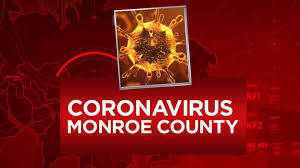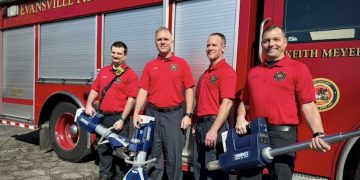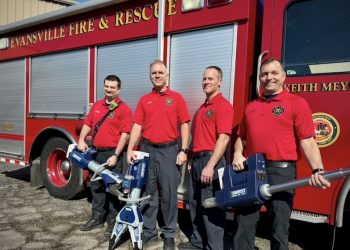There are no cases of the coronavirus in Monroe County as of Friday afternoon, according to a press release from the Monroe County Health Department.
Monroe County residents have limited access to COVID-19 tests, according to the release. Tests are being done at the Indiana State Department of Health laboratory and are reserved for those at critical risk of contracting the virus.
Indiana’s total number of confirmed COVID-19 cases remains at 12, according to the Indiana State Department of Health.
Monroe County Health Department’s lead health educator Kathy Hewett told the Indiana Daily Student testing for the coronavirus will only happen after tests for the flu and other respiratory infections come back negative. Results from rapid flu tests can be available within a few hours, according to the CDC. Medical staff will take a swab of the nose and throat, as well as draw blood to test for COVID-19, Hewett said.
While the state is waiting for more testing materials to be made available by the Centers for Disease Control and Prevention, the only option for patients with symptoms is to find a provider who uses a commercial lab to provide tests, according to the health department’s release.
Some patients may be told that they should treat the virus as if it is coronavirus despite not being able to be tested, according to the release. Since there is no vaccine for the coronavirus, the treatment involves staying home and away from others and contacting a health care professional, according to the CDC.
The state qualifications for testing include having a temperature above 100.4 degrees and difficulty breathing, Hewett said. If the patient meets this criteria, the patient will be tested, and a sample will be sent to the Indiana State Department of Health laboratories to be processed.
IU announced Tuesday it would cancel all in-person classes from March 23 to April 5 due to the coronavirus pandemic.
Monroe County Community School Corporation announced Thursday evening it is closing all MCCSC schools and early learning centers March 13 to 27 to limit exposure and deep-clean buses and buildings. Extracurricular activities and practices were also canceled.
For most Americans, the risk of being exposed to the coronavirus is thought to be low, according to the CDC. But older adults and people who have serious chronic medical conditions such as heart disease, diabetes and lung disease are at a higher risk of getting very sick from the virus.




















































































